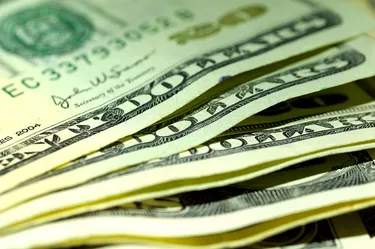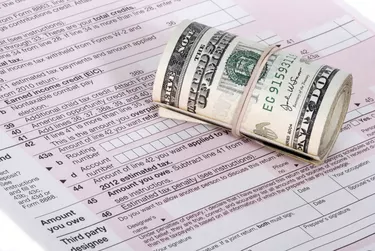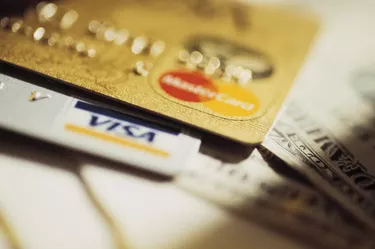
There are extra reporting requirements for cash deposits that do not apply to checks and other types of payments. A bank must report any suspicious cash deposits, as well as large cash deposits of $10,000 or more. Banks submit the Currency Transaction Report to tell the Internal Revenue Service (IRS) that the bank received a large cash deposit, which is different from Form 8300 that other types of businesses file.
Transaction Definition
Video of the Day

The bank may submit a Currency Transaction Report even if the depositor does not make a single cash deposit of $10,000. This regulation refers to a single transaction, not a deposit, so the bank must issue a report if it believes the entire deposit is part of the same transaction. For a business, this refers to the deposit of a single day's income. For example, if a retail store deposits $6,000 of its cash from sales on one day, and then deposits $5,000 the next day, the bank records two different transactions and doesn't report them to the IRS. If the manager deposits $6,000 in the morning and $5,000 in the evening, the bank reports a single deposit transaction of $11,000.
Video of the Day
Suspicious Activity Report

A bank can also submit a Suspicious Activity Report to the IRS. A bank only sends in this form if the customer appears to be laundering money from an illegal business, depositing stolen money or committing another crime, and the deposit is at least $5,000. The bank can submit a Suspicious Activity Report for any size deposit. The bank also turns in a Currency Transaction Report along with the Suspicious Activity Report, if the suspect deposits at least $10,000.
Identification

The bank has to provide proof of the depositor's identity when it turns in the Currency Transaction Report, which also means the depositor needs extra documents to make a large cash deposit. An existing relationship with the bank, such as the teller recognizing the customer, is not enough evidence to identify the depositor, according to the Internal Revenue Service. A signature or a debit or credit card from the bank is acceptable for smaller deposits, but for a large deposit, the depositor also has to provide a passport, a driver's license, a military ID or other government-issued identification documents.
Money Services Report
There is a separate suspicious transactions report when the bank offers money services, such as sending a check to a depositor's relatives in another country or issuing traveler's checks, This report is mandatory at half of the reporting threshold of a standard cash deposit, so the bank sends a report to the IRS if the suspicious transaction is larger than $2,500.